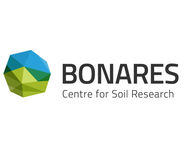Arable Land Tenancy and Soil Quality in Germany: Contesting Theory with Empirics (2017.0)
Daedlow K., Lemke N., Helming K.
Sustainability, 10 (8), 2880
Abstract
Soils are under increasing utilization pressure, and soil governance is an important element to maintain soil functions and prevent the degradation of soil quality. However, scientific studies about soil governance are rare. In this paper, we focus on the governance mechanism of land rent. Here, a major theoretical assumption is that landowners have higher incentives to maintain soil quality than leaseholders. By using data for German arable land at the county level, we contrast theoretical assumptions about the relationships between landowners, leaseholders and soil quality with empirical evidence based on correlations between arable land rent prices, rent proportions and yield potential. The main finding is that the empirical data contradict the theoretical assumptions to a large degree, i.e., no clear relationship could be discerned between the three parameters of arable land soil quality, rent price and rent proportion. We discuss possible explanations for the revealed contradictions based on the state of research and highlight the need for future research to better understand the potential of arable land tenancy as a governance mechanism for sustainable soil management.